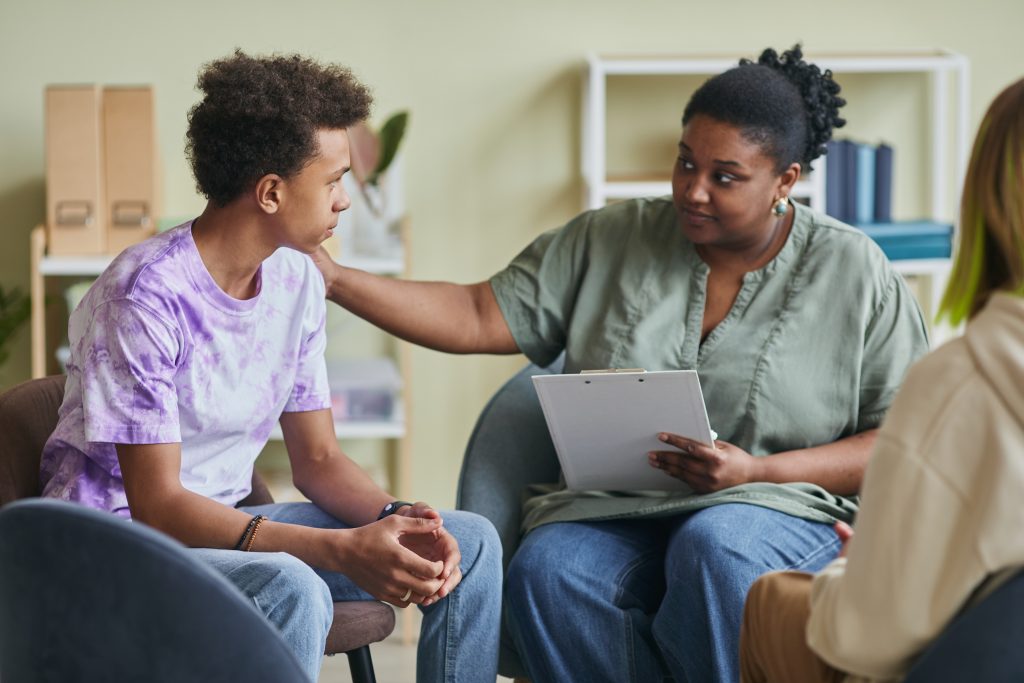
Summer Shutdown Week
June 23, 2023
Bullying Prevention Starts with Us
October 4, 2023
African young psychologist talking to teenage boy during therapy session at classroom
Mental health is critical to our overall well-being, and it affects individuals from all walks of life. However, it is essential to recognize that minority communities often face unique challenges when it comes to mental health. Understanding and addressing these challenges are crucial steps towards creating a more inclusive and supportive society.

When discussing mental health, it is important to consider the experiences and struggles faced by minority communities. Discrimination, systemic biases, cultural stigmas, cultural and generational traumas, and social isolation can all contribute to unique mental health challenges for minority youth. By acknowledging these issues, we take a significant step toward building a more inclusive and supportive society.
Stigmas surrounding mental health continue to persist, and minority communities often bear the brunt of these stereotypes. It’s crucial to challenge these negative perceptions and stereotypes and foster an environment where seeking help is seen as a sign of strength, rather than weakness. By sharing personal stories and fostering open conversations, we can encourage youth to seek support without fear or shame.
Each culture has its own beliefs, practices, and values regarding mental health. It’s important to recognize and respect these differences. Educating ourselves and others about cultural norms and values can help reduce misunderstandings and promote effective mental health support. By embracing cultural sensitivity, we can create safe spaces, like RAHS school-based health centers, for minority youth to express their concerns and seek appropriate help.

Minority youth may face additional barriers when trying to access mental health services. Language barriers, lack of culturally competent providers, and limited financial resources can all contribute to these challenges. It’s crucial to advocate for accessible and affordable mental health resources specifically tailored to meet the needs of minority communities. By normalizing help-seeking behaviors and providing appropriate resources, we empower young people to prioritize their mental well-being.
Community support plays a pivotal role in promoting mental health. Encouraging youth to engage in community organizations, support groups, and mentoring programs can provide them with a network of individuals who understand and empathize with their experiences. The more youth see themselves in their peers involved in these organizations and groups, the more strength they will gain in participating and asking for mental health supports for themselves. These support networks can serve as a source of inclusion and resilience, fostering a sense of belonging and empowering youth to overcome mental health challenges.

Raising awareness about minority mental health among youth is a vital step toward changing the narrative for the better. By acknowledging the unique challenges faced by minority communities and fostering cultural sensitivity, we can create a supportive environment where all young people feel seen, heard, and understood, ensuring that no one is left behind on their journey toward well-being. Remember, you are not alone—seeking help is a courageous step towards a brighter future.

